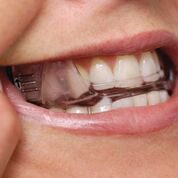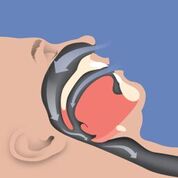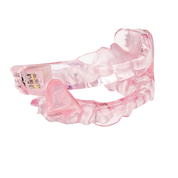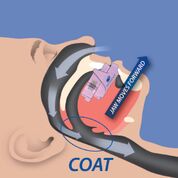Obstructive Sleep Apnoea & Snoring


Snoring is caused when some parts of the throat vibrate. It occurs during sleep when the area at the back of the throat or in the nose relaxes and narrows. The narrower it is, the more easily it will vibrate and air movement is then restricted in the air passage, resulting in the sound.
What can raise the risk of snoring? –
- Being overweight and having excess fatty tissue around the neck, making the throat narrower.
- Smoking, which causes inflammation of the airways and irritates the nasal passages.
- Allergies which cause swelling of the nasal passages, colds or sinus infections
- Alcohol, which slows the brains responses causing more relaxation than usual.
- Medication, antihistamines and sleeping pills in particular, which can have the same effect as alcohol.
- Mouth breathing during sleep
- Sleeping on your back
- Having a narrow throat, enlarged adenoids or tonsils



A more serious type of sleep disordered breathing can result in stoping breathing; this is called Obstructive Sleep Apnoea (OSA) and can be mild, moderate or severe. In milder cases the airways narrow greatly but may not close. This results in breathing being very shallow with loud snoring. The more severe type of OSA is caused by the lack of muscle tone in the upper airway which causes the airway to close fully and causes pauses in the breathing. The body’s natural reaction causes breathing again, with a gasp. This will disrupt sleep throughout the night and may lead to daytime sleepiness.
It is a very difficult condition to diagnose and most people who have sleep apnoea don’t know they have it, as it only happens during sleep. Your partner may be the first to notice the signs.
Obstructive Sleep Apnoea is a serious condition that can only be diagnosed by a medical practioner who has training is sleep disorders. Once Sleep Apnoea is suspected a sleep study will be carried out to confirm the diagnosis.
How your dentist can help?
Your dentist can fabricate a device (on prescription from a physician) that is custom made for you and is scientifically proven to decrease snoring sounds in most cases. It is called a Mandibular Advancement Device or Splint and works by holding your lower jaw and tongue forward therefore keeping your airway open whilst you sleep.
These devices can be used in select patienst with OSA but may not work for everyone. Speak to a dentist experienced in dental sleep medicine for taylored advice.
Further information can be found on the following links;
Australasian Sleep Association
American Academy of Dental Sleep Medicine
